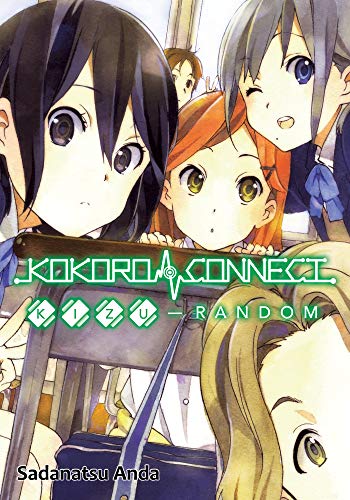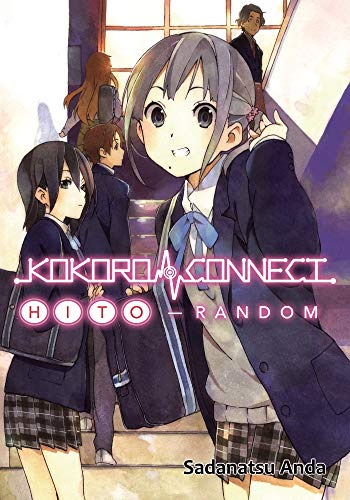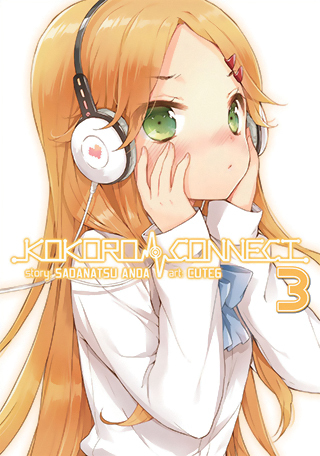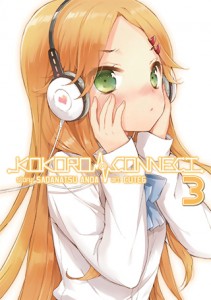By Sadanatsu Anda and Shiromizakana. Released in Japan by Enterbrain. Released in North America by J-Novel Club. Translated by Molly Lee.
The current fashion in North American releases seems to be not to translate something if it’s already better known to fans by the Japanese. I suspect that’s why we see each subtitle in the Kokoro Connect series this way: Hito Random meant Random People, which fits well with the bodyswapping nature of the book. Now we have Kizu Random, which I personally think might have had a greater impact were it translated, as it means Random Wounds. Likewise, due to the nature of the bodyswap, the first book out of necessity had to keep the group as mostly a tight-knit group of friends. This book, however, is darker in tone, and shows how easily such friendships can be sabotaged – mostly by overthinking things, or self-loathing, or any number of details that add up to “we are teenagers”. Indeed, what Heartseed is doing is something I think ideally suited for teenagers, who are going through this kind of thing anyway, and you could argue it’s just helping them along. Of course, you could also argue Heartseed is a sadistic jerk.
A couple of weeks after the events of the first book, our five heroes are told by the alien that is toying with them that they’re going to have moments where they suddenly lose control of their emotions and desires and act on them. Having experienced this sort of thing before, and not looking forward to it at all (mostly as she was the first to be affected, stripping and getting on top of Taichi in the clubroom), Inaba convinces the others that they can get through this as long as they keep an even emotional keel and just try really hard. That… doesn’t work, and soon Yui’s beating up delinquents (which causes her to shut herself at home), Taichi has a lot more desire to “save” people than he normally does (which is amusing, given it’s quite high to begin with), and Inaba is forced to deal with a fact that she’s been avoiding for quite some time. Friendships can be fragile, especially at this time of your life, and by halfway through the book no one is speaking to anyone.
The strengths of this book are once again the writing of the characters, who feels their age and also sound it. There’s a lot of angst and melodrama here, but it’s never really overwrought except where it’s supposed to be. For the most part the book is 3rd person Taichi POV, but we also have several chunks where it’s first-person Inaba, and those show off how screwed up her mindset is and how easy it can be to filter everything you say or do through a negative, self-loathing filter. And then there’s the “love triangle”. Taichi and Iori like each other, but don’t want to date while Heartseed is messing with them. Inaba finally admits she loves Taichi and confesses, but is rejected – for the moment. It’s a very “mature” rivalry so far, but that’s mostly because it resolves itself after a huge outpouring of emotional release from both Iori and Inaba, and I’m curious as to how messy it might get in the future.
Kokoro Connect remains a well-written teen drama, and is a refreshing change of pace for those who are bored by the idea of yet another isekai. Even if you’ve seen the anime, you should pick it up.





